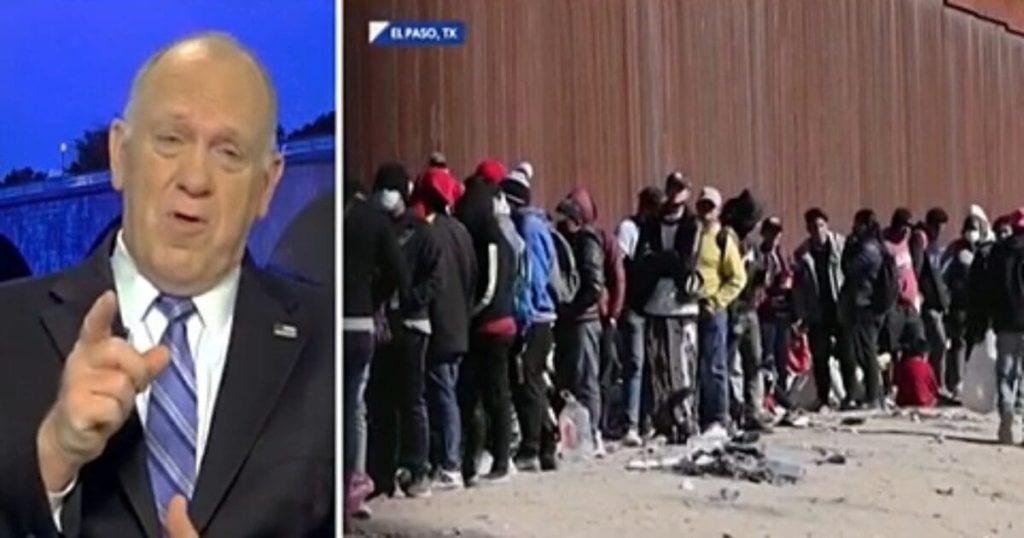
‘Game on’: Tom Homan responds to ‘not very smart’ Boston mayor who vows to defy immigration reform
Incoming Border Czar Tom Homan said Boston’s Democrat mayor needs to cooperate with the new Trump administration’s immigration plans or “get the hell out of the way.” The former acting Immigration and Customs Enforcement (ICE) director who was tapped by President-elect Trump as his new “border czar” told Newsmax on Monday that Democratic Boston Mayor Michelle Wu is not “very smart” for declaring her opposition to the incoming administration’s plans to confront illegal immigration and it’s “game on” if she wants to try. Trump plans to make good on his campaign promises of dealing with the border crisis and the influx of migrants coming into the country illegally, declaring that they will be found and deported. Wu is not on board and took her stand in remarks in a Sunday interview with local news station WCVB. The mayor declared that Boston, one of the so-called sanctuary cities in Massachusetts, is not “cooperating with those efforts that actually threaten the safety of everyone by causing widespread fear and having a large-scale economic impact.” (Video Credit: Newsmax) “Well, she’s not very smart, I’ll give her that,” Homan told Newsmax host Greg Kelly. “President Trump is going to prioritize public safety threats. What mayor or governor doesn’t want public safety threats out of their communities?” “That’s our number one responsibility; to protect their communities and that’s exactly what we’re going to do,” Homan added as he emphasized how the left has come to paint criminals as the victims. “So either she [Wu] helps us or she gets the hell out of the way because we’re going to do it,” he continued as he dropped the facts on the mayor and others like her. “There’s a clear line here, and they can’t cross that line. I will suggest she reads Title 8, United States

 The protection of our homeland is the cornerstone of our policy. We believe in strong borders and immigration reform which provides a pathway to citizenship to those who arrive in our country legally. We advocate for a strong military which receives appropriate funding to recruit the best and the brightest to serve in our military branches including the Army, The Navy, The Airforce, and the newly minted Space Force. We adhere to a policy that honors and supports our retired veterans and their families. We support the fortification of our electronic borders through cyber security.
The protection of our homeland is the cornerstone of our policy. We believe in strong borders and immigration reform which provides a pathway to citizenship to those who arrive in our country legally. We advocate for a strong military which receives appropriate funding to recruit the best and the brightest to serve in our military branches including the Army, The Navy, The Airforce, and the newly minted Space Force. We adhere to a policy that honors and supports our retired veterans and their families. We support the fortification of our electronic borders through cyber security.
